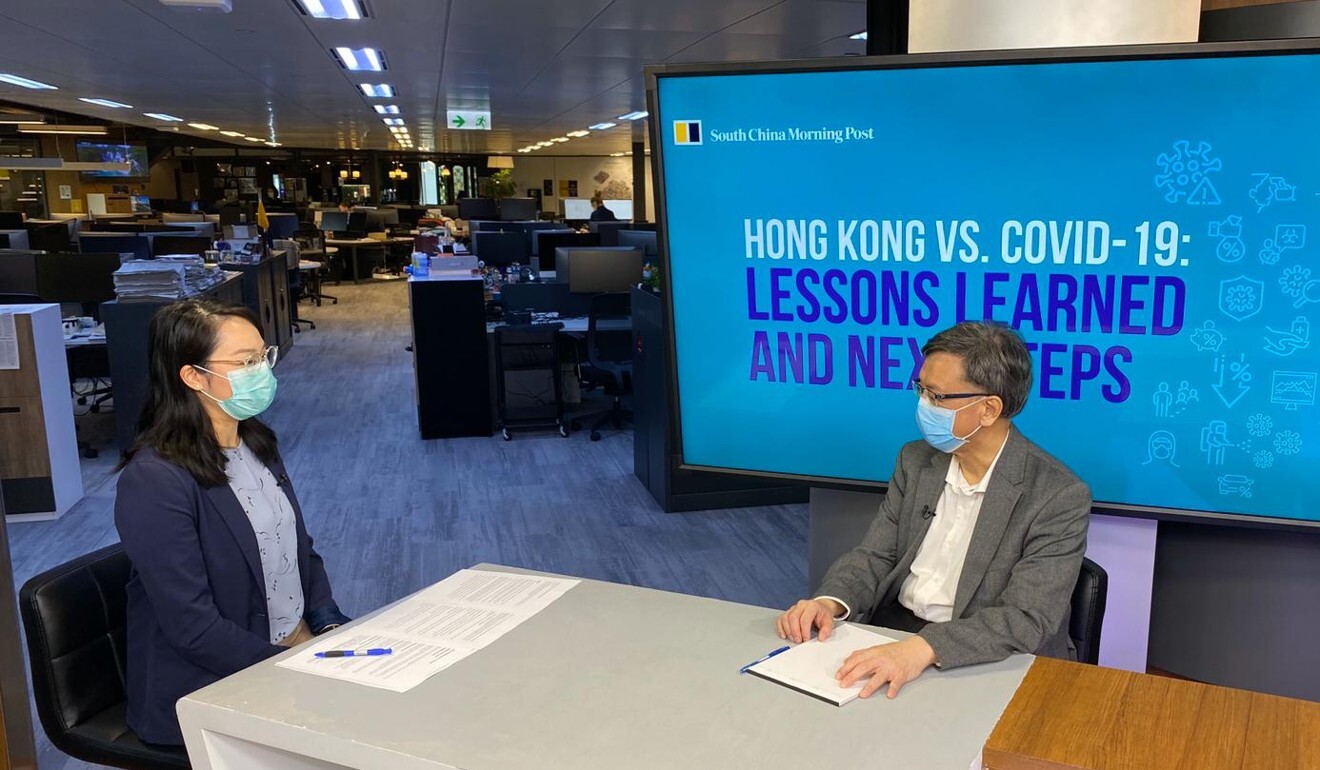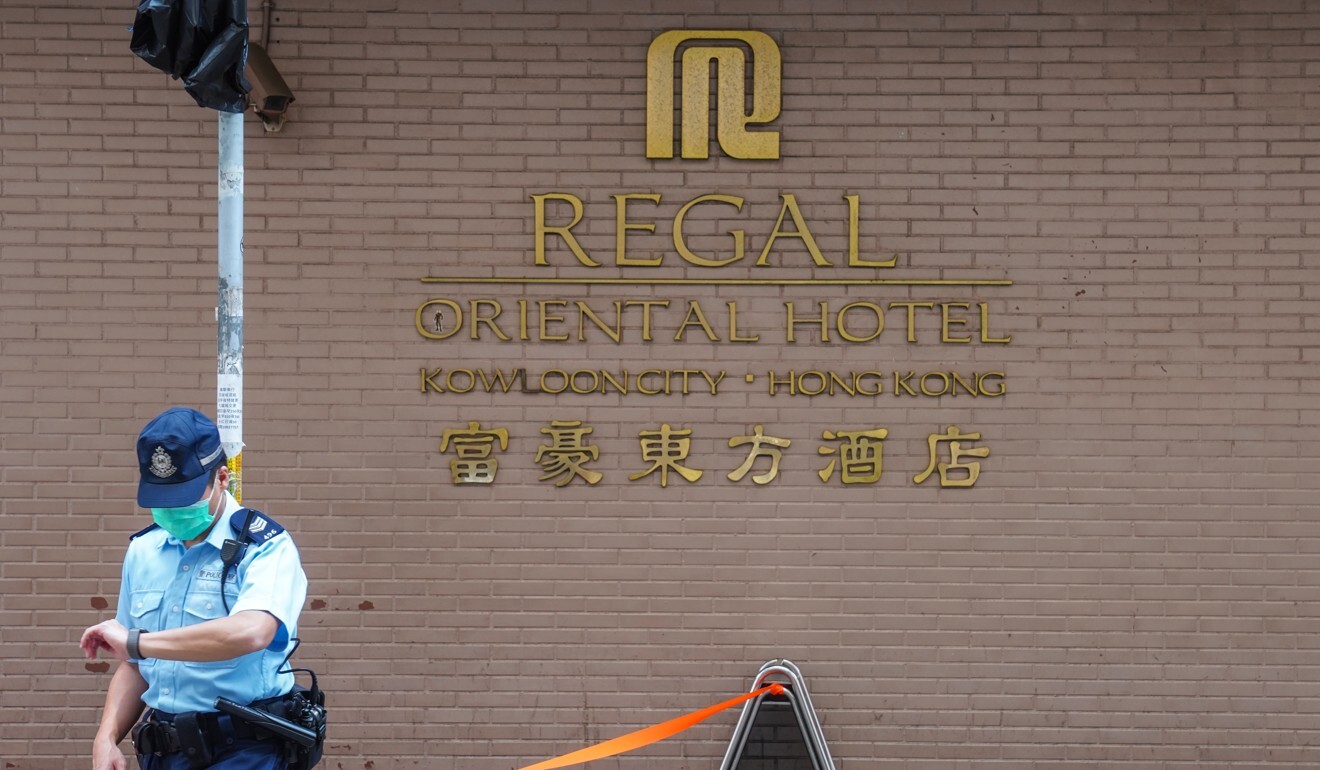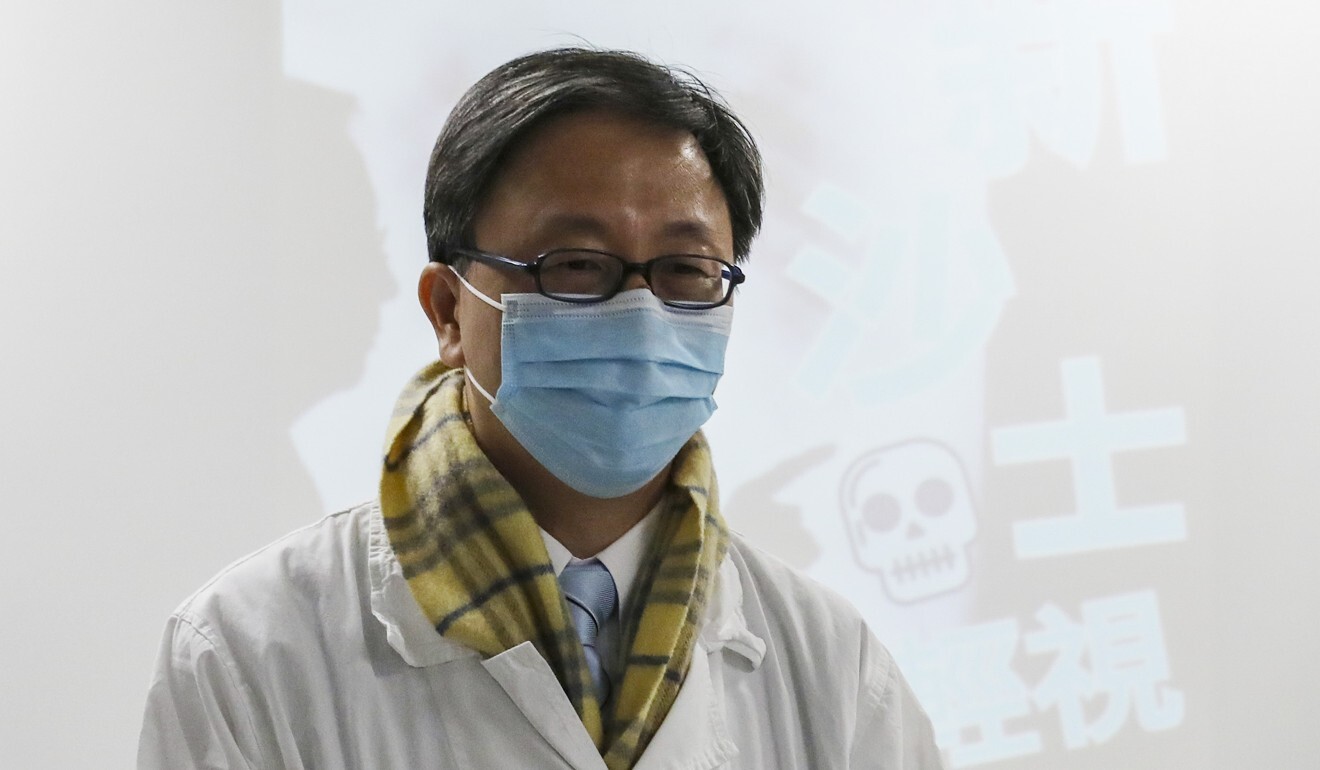
Hong Kong needs permanent quarantine facilities to cope with future disease outbreaks: health chief
- Food and health secretary Sophia Chan tells lawmakers the city’s long-term quarantine needs will be assessed once the Covid-19 outbreak subsides
- Of the city’s 1,033 confirmed infections, more than 600 have been officially classified as imported cases
The statement from Secretary for Food and Health Professor Sophia Chan Siu-chee came as all those arriving into the city by air from Wednesday are now required to stay at specific locations – either a testing centre near the airport or a hotel in Kowloon City – to wait for coronavirus test results.

“In the long run, we believe there is a need to set up in Hong Kong permanent quarantine facilities to cope with outbreaks that may occur in the future,” Chan wrote to lawmakers.
“After the Covid-19 outbreak has subsided, we will assess the situation in a holistic manner and consider Hong Kong’s long-term quarantine needs for making preparations.”
Dr Chuang Shuk-kwan, head of the Centre for Health Protection’s communicable disease branch, said all four new cases involved Hong Kong residents returning from Britain, including a two-year-old boy.
The boy was admitted to Alice Ho Miu Ling Nethersole Hospital in Tai Po after a stool sample came back positive for the virus, and his parents have been placed in isolation at quarantine centres.

Since late January, when the disease began to spread in the city, health authorities have converted holiday camps, a hotel and a public housing estate into quarantine centres for people who had been in close contact with confirmed cases but had not shown symptoms.
The four facilities have so far provided more than 1,700 units for quarantine use.
Three other holiday camps were also used to quarantine people who arrived from mainland China and were not able to spend the 14-day isolation period at home or other residences.
Hong Kong residents who returned from anywhere else outside the city are required to spend the quarantine period at home or in hotels.
Coronavirus: lockdowns are not the reason Hong Kong and South Korea are beating Covid-19. Model citizens might be
The Regal Oriental Hotel in Kowloon City has become the latest venue used by the government in its fight against Covid-19, after medical experts called on authorities to set up a site where all inbound travellers can wait for test results to avoid bringing the coronavirus into the community.
It is expected to house more than 300 people on Wednesday, when it came into operation.
A spokesman from the Department of Health said up to 400 rooms were currently at their disposal, but he refrained from disclosing the costs and details involved “so as not to affect the government’s bargaining power” as the authorities were seeking other suitable sites.
Top microbiologist Dr Ho Pak-leung from the University of Hong Kong agreed there would be a need to set up permanent quarantine facilities equipped with individual rooms as well as proper sewage and ventilation systems.

“Those facilities should be used for close contacts of confirmed cases or people linked to any big clusters,” Ho said, adding city residents would prefer they were built in remote areas.
He said those facilities should be able to host around 1,000 people, a total based on the amount of close contacts that emerged from some previous super-spreading events.
Dr Leung Chi-chiu, chairman of the Hong Kong Medical Association’s advisory committee on communicable diseases, said all overseas returnees should be placed in quarantine centres or hotels, rather than the current arrangement of allowing them to stay at home.
“[Home stays] cannot avoid the problem of returnees becoming silent carriers during the middle of the quarantine period. They can pass the virus to their family members, and their family members can bring it to our community,” Leung said during a webinar organised by the South China Morning Post on Wednesday.
“There is still a loophole there,” he said. “Home is not a safe place [for quarantine during]this pandemic.
“Such a strategy has not been shown to work in Europe or the United States. Isolating patients at home cannot stop the spread of the epidemic.”
Leung noted that around 25 per cent of Covid-19 cases in Hong Kong involved clusters, many of them within families.
Coronavirus: with infection rate slowing to a crawl, is it time for Hongkongers to relax a bit? Here’s what you need to know
Michael Li Hon-shing, executive director of the Federation of Hong Kong Hotel Owners, said there were concerns if hotels were to be used as quarantine facilities.
“How would the current residents of those hotels respond?” he said. “And hotel staff are trained to serve people rather than providing health care support.”
Li said the government would need to provide equipment and information to hotels if they were used as quarantine facilities.


